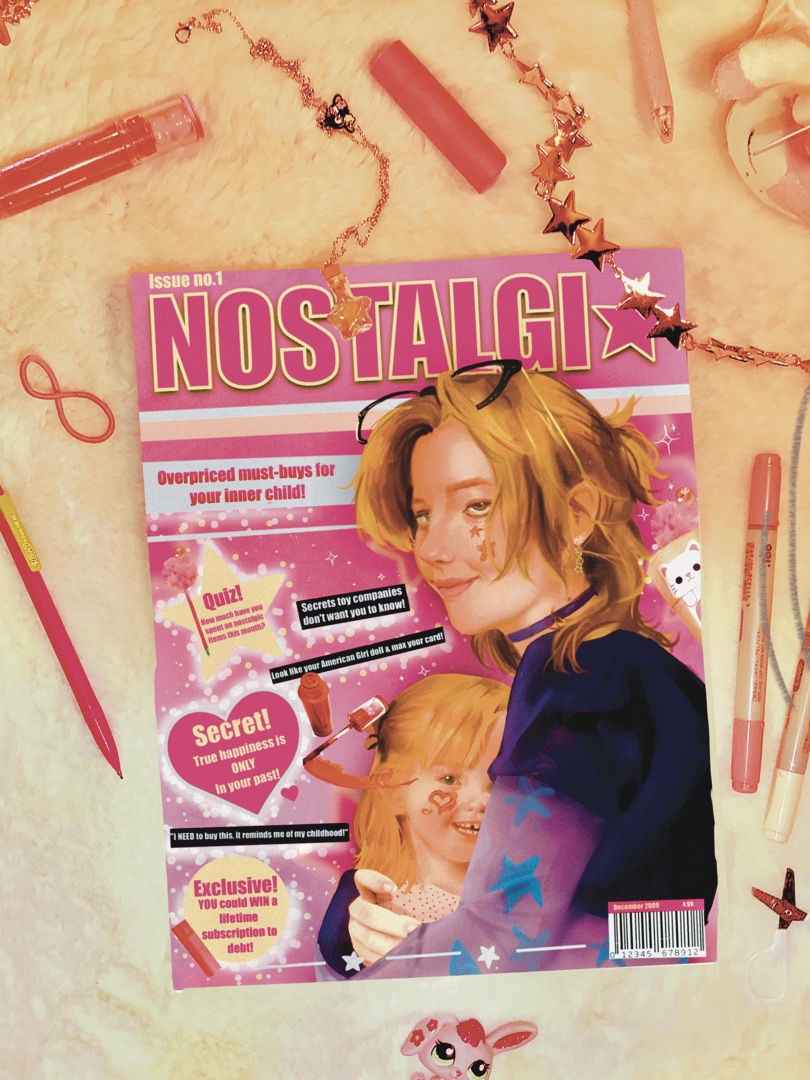Being in high school is a very complicated experience. It can be difficult, it can be boring and it can be the most unsettling thing to ever happen to you. All of this uncertainty in our teenage years can cause us to look back at a time that felt easier. We scroll through our camera rolls and we see memories reflected from eighth grade dances, past Halloweens and first sleepovers with our elementary school best friends. We wonder why life cannot be easy like that again. Why can it not be the first day of kindergarten? Why can I not feel like a kid again?
Almost everyone has felt a bittersweet feeling when presented with something that was connected to the past. Maybe it is an old family photo or a favorite childhood toy, but whatever it is, it triggers an affectionate look on the past and a deep dive down memory lane. But why does this happen?
The basic definition of nostalgia is stated as a sentimental longing for the past. Simple. However, the actual psychology behind it is anything but that. Nostalgia is harder to categorize as either a good or bad emotion than some might think. Even though this reflection stimulates a warm, comfortable feeling, it has been found that the most nostalgic people are often the most depressed.
David Ludden, PhD, did a study to understand why this supposedly happy sensation was tied to something darker. Ludden discovered that “…people use nostalgia as a palliative”. He showed that nostalgia is more often used as a defense mechanism and embracing it is not helpful in solving long-term melancholiness. Nostalgia, therefore, should perhaps be classified less as an innocent remembrance and more as a negative mental habit.
This still does not explain why people get saddened by looking back at the past. Research has shown that people compare the younger versions of themselves to their present selves. Valentina Stoycheva, PhD, says that “[Nostalgia] causes the present moment to be only colored by the negative emotions, in favor of glorifying some moment in the past.” This can be a toxic and harmful version of nostalgia. For example, an unhealthy way of coping with a bad breakup is wallowing and going through every single text and photo that was exchanged. The longing for a different reality is unhelpful, and the regret that comes with the negative ruminations can be damaging.
This complex feeling is not all horrible. Although there is a lot of negativity associated with nostalgia in the psychology world, more recent documentations have discovered that there are good parts of it as well. Jill Suttie, Psy.D., believes that “…nostalgia can be an important resource for increasing meaning, by highlighting central moments in our lives”. This can help make positive connections to memories. So, instead of focusing on the fact that you are not in a relationship, you can reflect on the growth the experience created, promoting pride in your self-discovery. This is a healthy way of indulging in nostalgia without the negative repercussions.
Feeling nostalgia can be hard. It can be challenging to not only think about the positive facades of memories but to also remember the less comfortable reality. It can be demanding, especially now, to continue to go forward into the future. It is daunting because we are expected to have our whole life figured out. We are supposed to have an answer when a relative asks “What are you going to major in?” or “Which colleges are you applying to?” High schoolers feel like they need to know who they are going to be as adults when they are still children. We cannot help thinking back when the most pressing worry was whether our best friend would be in our class.
But we will be grateful for this time. One day, when we are getting our first job promotion or starting a family, we will look at how far we have come. We will be proud of the way we followed our instincts, and the decisions we made for ourselves. We do not have to be scared of this time. We do not have to dread it. At the end of the day, our future selves will be better for the experiences we have today.































Sofia Arriaga • Oct 4, 2024 at 11:03 am
This is beautiful Sophie! I sobbed while reading this <3